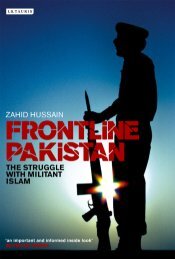Who Owns Pakistan - Yimg
Who Owns Pakistan - Yimg
Who Owns Pakistan - Yimg
You also want an ePaper? Increase the reach of your titles
YUMPU automatically turns print PDFs into web optimized ePapers that Google loves.
Sugar Mills and Samundri Sugar Mills of Punjab Industrial Development Board<br />
(PIDB) were privatized to Monnoos and United group. Within months of coming<br />
into power as Prime Minister in 1990, the management of National Development<br />
Leasing Corporation (NDLC) was withdrawn from House of Habib and handed<br />
over to the United group.<br />
Nearly half of the assets privatized by Nawaz Sharif ended up with Mansha, his<br />
relatives or business associates. But bringing together the National group to bid<br />
for Muslim Commercial Bank was the biggest business coupe that Chiniotis could<br />
have staged against their main business rivals. Before nationalization, Muslim<br />
Commercial Bank was a Memon Bank owned by Adamjee and its purchase by<br />
Chiniotis demonstrated their rising power and the decline of the Memons. The<br />
National group which bought Muslim Commercial Bank was a consortium of 12<br />
leading industrial families, of whom all but two, Chakwal and Bashir Jan<br />
Mohammad were not Chinioti. While Muslim Commercial Bank was the flagship<br />
of Chiniotis rising power, they called upon a Memon banker Hussain Lawai to<br />
head it.<br />
A Nishat group profile in 1990 estimated that its assets were worth Rs 4 billion<br />
but the group profile in 1993 placed its assets at Rs 10 billion, a phenominal<br />
250% increase in assets in three years.<br />
Seventy five percent of the newly listed companies during three years of Nawaz<br />
Sharif belonged to the Chiniotis. Mansha launched seven new companies and<br />
Crescent listed eight new companies at the Karachi Stock Exchange.<br />
Earlier in this book we have reported about the Gas-war between the Memons<br />
and the Ismaeeli Khojas (Fancy) over the setting up of the first Non-Memon<br />
Textile Mills in Karachi but the resignation with which the Memons allowed<br />
Chiniotis to overtake them, in Bhutto and post-Bhutto era is amazing and a loud<br />
proclaimation of their disinterest in long-term economic development of <strong>Pakistan</strong>.<br />
While in 1960's every fourth factory in <strong>Pakistan</strong> belonged to a Memon, the<br />
Chiniotis own 125 out of 750 companies listed on the KSE in 1997.<br />
Chiniotis are a close fraternity who seldom marry outside their clan, with the<br />
result that marriages have come to play an importent role in their growth and<br />
kinship. During his interview with the author, Mian Habib took out a red book from<br />
his drawer which contained the names of 80 Chiniotis living in Islamabad and<br />
said that in the event of a marriage, a party or a tragedy in a Chinioti family, first<br />
people to get the information are the people listed in the book. Every city has its<br />
own directory of the Chiniotis.<br />
Chiniotis take pride that they are born businessmen and serve through industry.<br />
Unlike Memons who have a Memon Society of Professionals, there are very few<br />
prominent Chinioti professionals or civil servants. Mazhar Rafi, former Secretary<br />
Defense Production was the most well known Chinioti to succeed outside<br />
83













